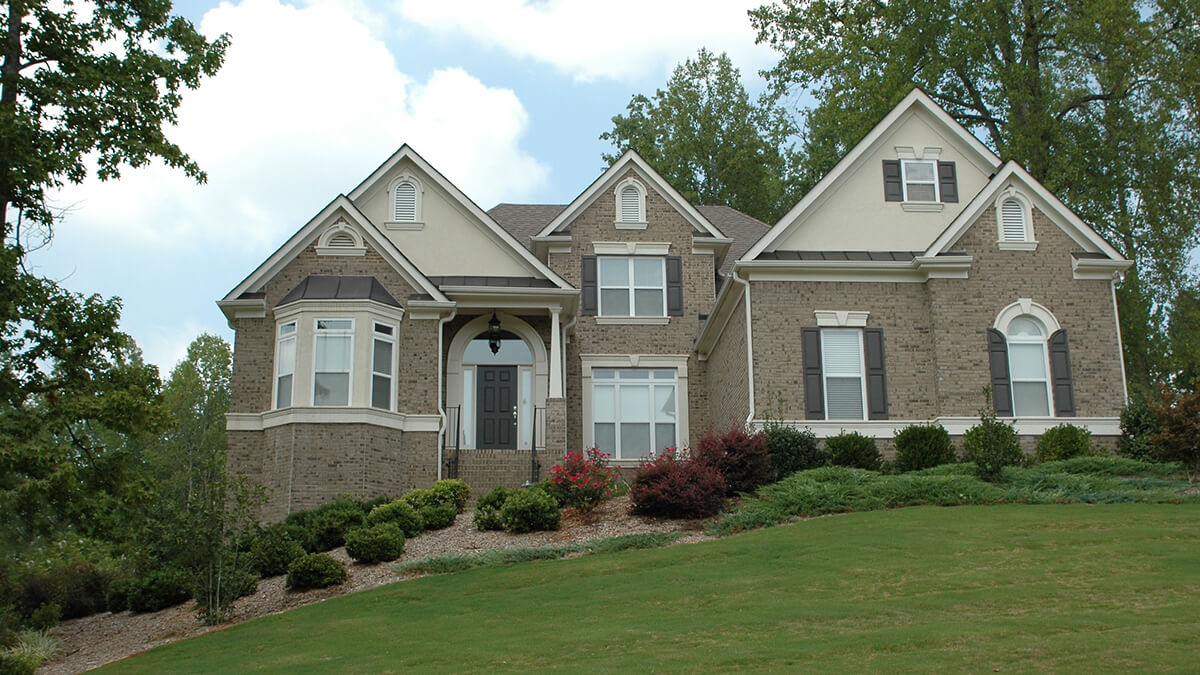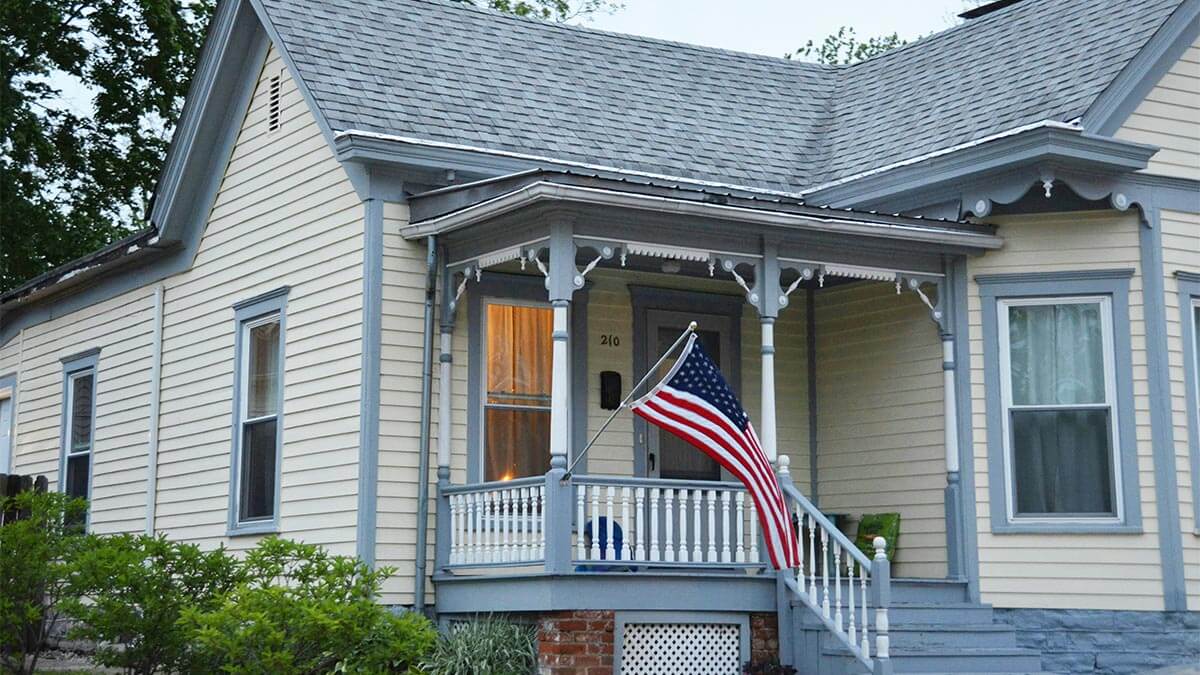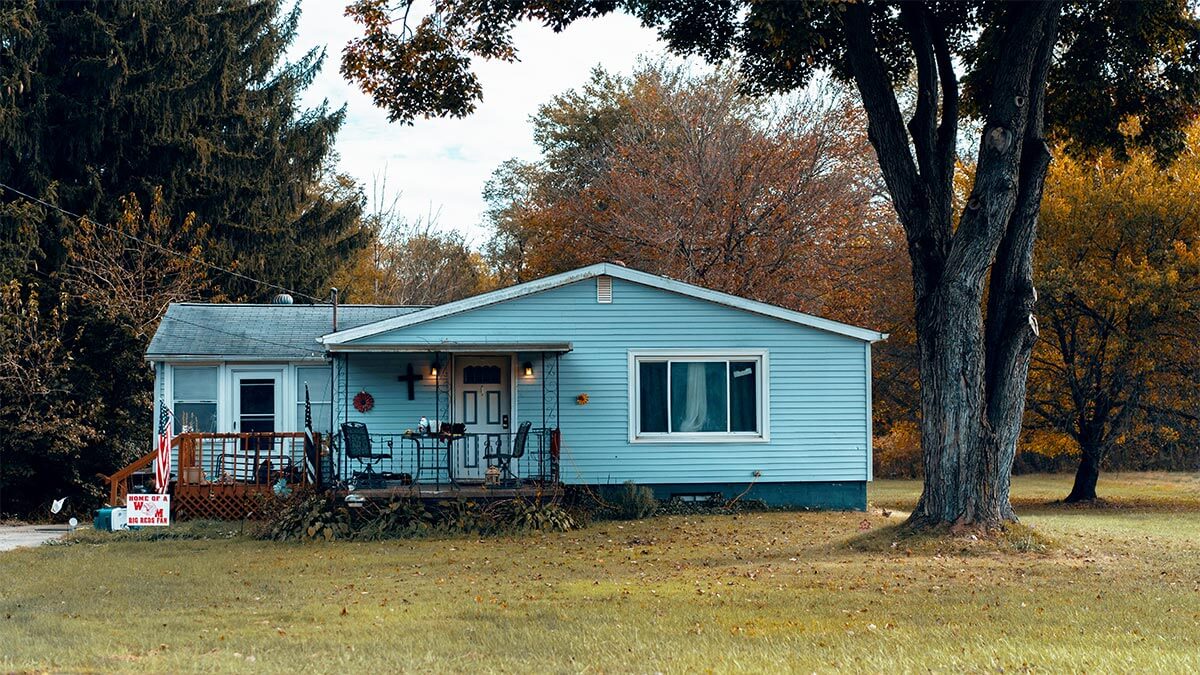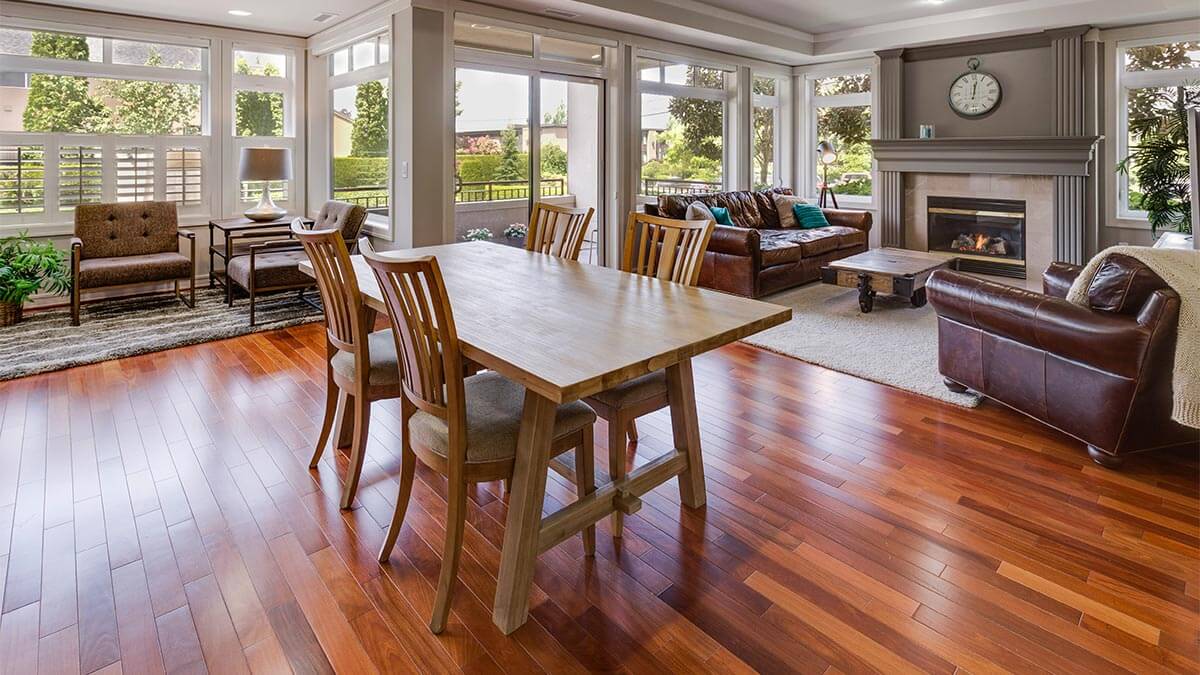Every year in the United States more than 6 million people sell their homes. This means that if you are looking to sell, you should be able to find a buyer easily.
However, a lot of hidden costs come with home sales, especially if you are selling a house after one year of ownership. One of the biggest costs to consider is how much tax you will pay when you sell your home.
Owning your home for a year may mean you have to pay more tax on your profits. So if you’ve been wondering “Can I sell my house after one year?” it’s important to think about this.
Read on to find out everything you need to know about selling a house after a year and how to maximize your profits.
Discover your home’s worth online for free in minutes!
Think About The Five-Year Rule
Before selling a house after one year, it is essential that you understand the five-year rule. This is advice that most real estate agents will give you before you sell your home.
The five-year rule is based on how much value your home will appreciate while you live there. At the moment in the US, the appreciation rate for homes is 18.7% per year. This means that a home worth $100,000 will be worth $119,100 in a year’s time.
Owning a home for five years or more gives it time to appreciate more value. You will also get a bigger tax break when selling a home that you have owned for five years or more.
This means that when you come to sell it you will be more likely to make a profit on the sale.
Of course, you cannot always control when you need to sell your home. You might need to downsize to free up some of your financial capital. Or you might be relocating for work.
Whatever the reason, it is possible to sell a house even if you have only owned it for a year. In that case, you need to understand what this process will involve and how to get the most money for your home.
Drawbacks of Selling a House Within a Year
There are downsides when it comes to selling a house after one year of ownership. Most of these relate to the financial impact that selling your home so soon can have.
For example, you will have to:
- Cover the cost of moving to a new home
- Cover the transaction fees of selling your home not long after covering the fees of buying it
- Face higher tax rates for your property sale
- Accept that your home won’t have appreciated much value over the course of a year
All of these can seriously eat into the profits you make when selling your home. So you need to plan carefully for this.
It can also be harder to find a buyer for your home so soon after you have bought it. Some buyers might be nervous that there is something wrong with the property if you no longer want to live there.
You can help this by telling potential buyers why you are moving. For example, if you are relocating for work or starting a family, this can placate some of their worries.
Capital Gains Taxes When Selling a House After One Year
The Inland Revenue Service charges taxes on capital gains that you make when selling an asset. These gains apply to any profit you make when selling that asset.
For example, let’s say you bought your home for $250,000 and sold it for $310,000. In that case, your $60,000 profit is taxable.
However, the amount of tax you have to pay depends a lot on how long you have owned your home.
If you have lived in your home for at least two years within a five-year period, up to $250,000 of capital gains are tax-free. If you are married and file jointly, this increases to $500,000 of tax-free capital gains.
Of course, if you have lived in your home for a year, this exemption won’t apply to you. In that case, you may face a tax penalty. The IRS will tax any profit you make on your home as a short-term capital gain or income.
The tax rate for this can be as much as 37%! So, if you make a profit of $60,000, you could end up paying $22,200 in taxes. This can make a significant dent in your profits when selling your home.
Costs to Consider When Selling Your Home
As well as considering the capital gain tax on your home, you also need to think about the other costs involved. This will help you make a financially sound decision.
Some costs to consider include:
- Staging fees for your home viewings
- Professional home photography fees
- The commission that your realtor will take from the sale (usually between 5% and 6%)
- Seller concessions you may have to make on the asking price (usually between 2% and 6%)
- Overlap costs (usually between 1% and 2%)
- Inspection fees
- How much your lender will charge you to pay off or transfer your mortgage
As you can see, this means that you could be looking at losing more than 18% of your home sale price to these costs. So if you sell a property for $250,000, you could spend nearly $50,000 covering these costs.
These aren’t the only costs you need to consider. You also need to account for closing costs and the cost of moving. Let’s take a closer look at how much you can expect to spend on these.
Closing Costs
Your closing fees cover the administrative cost of selling your home. This also includes property taxes that you may have to pay after your sale.
These fees include:
- Title fees
- Escrow fees
- Recording fees
- Prorated property taxes
Overall, these fees can amount to between 1% and 3% of your sale price.
Moving Costs
Once you have sold your home you will also need to move into your new property.
If you have bought a new home then you’ll also need to account for the closing costs of this sale. However, even if you are renting, you need to budget for the cost of moving.
The average cost of moving home in the US is $1,250. This can be a lot more expensive if you have a lot of belongings to move or if your new home isn’t local.
Most moving companies also charge extra for packing services, furniture assembly, and liability insurance. So you should make sure that you get an accurate quote for your house move before hiring a removal firm.
Can I Sell My House After One Year and Still Make a Profit?
It is possible to sell your home after one year and still make a profit. This requires careful financial planning.
If you want to know how to sell a house and make a profit, you will need to:
- Calculate the value of your home and its appreciation
- Find ways to increase the value of your home
- Figure out your selling and moving costs and budget for these
- Find ways to reduce your selling or moving costs
- Estimate how much you will have to pay in taxes on your profits
- Reduce your tax bill where possible
Selling your home at a popular time of year will help you to maximize the profit you make on it. So keep this in mind as well. The summer months are popular for movers so it is a good idea to put your home on the market in mid-to-late spring.
What’s Your Home’s Value?
To calculate your home’s value you need to look at a number of things. These include:
- Its location
- The size of your property and its usable space
- The age and condition of your home
- How up-to-date your property is
- Its walkability score
Once you have looked at these factors, you can compare your home to similar properties. Their sale prices can give you an accurate figure of how much your home will sell for.
You can also use a number of online tools to find out the approximate value of your home. Or you can speak to an experienced realtor about how much your home is worth.
The property market will also have an impact on how much your home sells for. If homes are in high demand then you can expect to make a bigger profit from your sale.
It is worth noting that there are plenty of things you can do to increase the value of your home before putting it on the market. Let’s take a closer look at these.
Upgrade and Repair Your Home Before Selling a House After a Year
Whether you are selling after one year or ten, making home improvements will increase your property’s value. Depending on your budget, these can include:
- Optimizing your home’s floor plan to make the most of living spaces
- Dealing with structural issues
- Installing a new heating system
- Landscaping your garden
- Rewiring and plumbing old houses
- Installing bifold doors
- Getting a loft conversion
- Improving storage space and solutions in your property
- Investing in solar panels
- Redecorating
- Installing double-glazing
- Updating the kitchen and bathrooms
- Improving the exterior of your property and working on its curb appeal
Some of these home improvements can cost thousands of dollars and take a long time.
However, simple changes, such as painting your rooms a light, neutral shade can help. This will make your property appear brighter and more spacious than before!
Qualifying for a Lower Capital Gains Tax Rate
It is worth noting that you cannot get a tax exemption on capital gains more than once every two years. So if you have recently sold a property or haven’t lived in your home for more than 24 months you’ll face a higher tax rate.
You may qualify for a reduced rate if you are selling an inherited house after the death of a spouse or are getting divorced. You may also be exempt if you are relocating for work, especially if you work for the military or intelligence services.
You can also reduce your tax rate by including your losses in your tax return. These can include your home sale fees and money that you have spent on home improvements.
This will reduce your overall profit and can put you in a tax bracket with a lower rate. So make sure you include everything you spend on your tax return.
You could also receive a tax exemption if you invest the money from your sale in a property for business use. You can do this using a 1031 exchange form.
Consider Your Selling Costs
To maximize your profits, you should also think carefully about your selling costs and where you can cut them.
For example, you might save money by shopping around for a home photographer or by staging your home yourself. Selling your home without a realtor will also mean you don’t have to pay a commission on your home.
So how can you sell your home without involving a realtor?
Selling With An iBuyer Might Be a Good Option
If you want to sell your home quickly, minimize costs, and maximize profits then an iBuyer is a great option. In fact, an increasing number of people are using these services to sell their homes!
iBuyer companies (or instant buyers) let you share your property details and photos securely online. A buyer will send you quick all-cash offers for your property. After a home inspection, you can accept this offer and complete your home sale in a matter of days.
These buyers tend to offer great value for properties, so you can maximize your profits. Some platforms charge a service fee but this means that you don’t have to hire a realtor. So you won’t have to pay a commission or budget for home marketing and staging costs.
Get Help Selling Your House
If you’ve been wondering “Can I sell my house after one year?” the answer is yes you can! However, you may end up paying a lot more tax on your profits when selling a house after one year.
Because of this, it is important to find ways to maximize your profits and reduce your tax rate. Selling a house after a year using an iBuyer is a great way to do this.
So what are you waiting for? Get a cash offer on your home from an iBuyer now!




